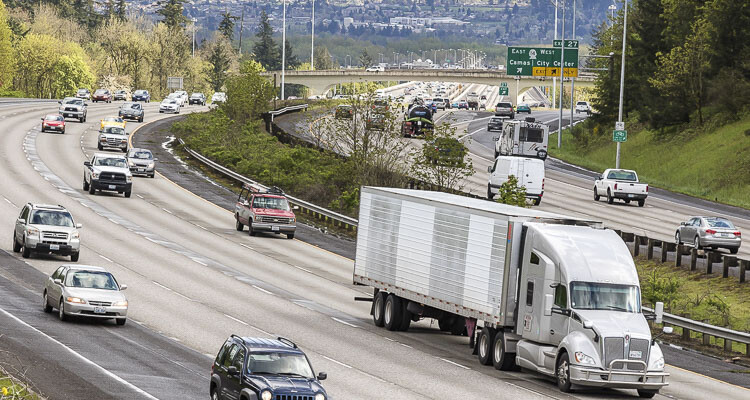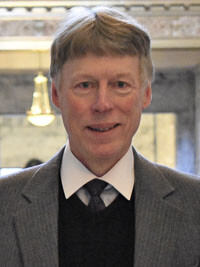
Charles Prestrud says that even though motorists are paying taxes on CO2 emissions, they won’t see any benefit when it comes to highway maintenance or completion of needed improvements
Charles Prestrud
Washington Policy Center
An editorial in the July 5th Wall Street Journal suggests that Washington State is imitating California. They don’t mean that in a good way. Their point is that Washington residents shouldn’t be surprised that the state’s new tax on carbon-based fuels has made our gas prices the highest in the U.S. Several years ago California enacted a similar cap-and-trade tax on carbon fuels and their gas prices are nearly as high as ours.

My colleague Todd Myers has shown that Washington’s carbon tax has increased the price of gas by about 44 cents per gallon, and that is on top of Washington’s 49.4 cent per gallon gas tax, which was already one of the highest in the U.S. It’s easy to blame the oil companies for high prices but their profit margins are slim compared to the taxes the state is raking in.
The Wall Street Journal editorial hit the nail on the head, but the high price of gas is only half the story. Washington is also following California’s lead in another way that isn’t good, which is the deteriorating condition of our highways. Anyone who has driven on I-5 through Seattle will have noticed this, and it’s confirmed by the Reason Foundation’s Annual Highway Report which ranks Washington State’s highways 46th out of the fifty states, just one notch above California. The dire need for highway system repair and repaving has not escaped the attention of WSDOT. WSDOT Secretary Roger Millar has gone so far as to say “the system is on a glide-path to failure”. WSDOT has estimated that an additional $350 million per year is needed to bring the state highway system up to a state of good repair, but they have no plan to accomplish that.
You might think the hundreds of millions of dollars the State is collecting from the tax on CO2 emissions ought to go a long way toward funding high priority maintenance work. However, when the State Legislature adopted the carbon tax they specifically prohibited using the revenue for fixing state highways. Instead, the revenue is doled out to a smorgasbord of “green” programs the effectiveness of which remains to be seen. Meanwhile the backlog of deferred maintenance continues to grow.
So, even though motorists are paying taxes on CO2 emissions every time they go to the gas station, they won’t see any benefit when it comes to highway maintenance or completion of needed improvements.
Charles Prestrud is the director of the Coles Center for Transportation at the Washington Policy Center.
Also read:
- Busy pavement season ahead on Vancouver streetsThe city of Vancouver is set to repave and preserve 76 lane miles across 20 neighborhoods in summer 2025, with ADA upgrades and community notices throughout.
- State representative: Expect sticker shock when Interstate Bridge project officials reveal price, tolling plansAt a town hall in Battle Ground, Rep. John Ley warned of major cost increases and tolling burdens tied to the Interstate Bridge replacement project.
- Opinion: Washington state lawmakers increase the cost of driving – againBob Pishue of Mountain States Policy Center argues that new vehicle and fuel taxes in Washington will raise driving costs while diverting funds away from roads.
- Overnight full closure of I-5 near Woodland for bridge inspection, May 6WSDOT will fully close southbound I-5 near Woodland overnight on Tuesday, May 6 for a bridge inspection using a chain drag test.
- Opinion: Do we still need TriMet?John A. Charles Jr. of the Cascade Policy Institute argues that TriMet should halt expansion plans and prepare for major service reductions in response to falling ridership and rising costs.









